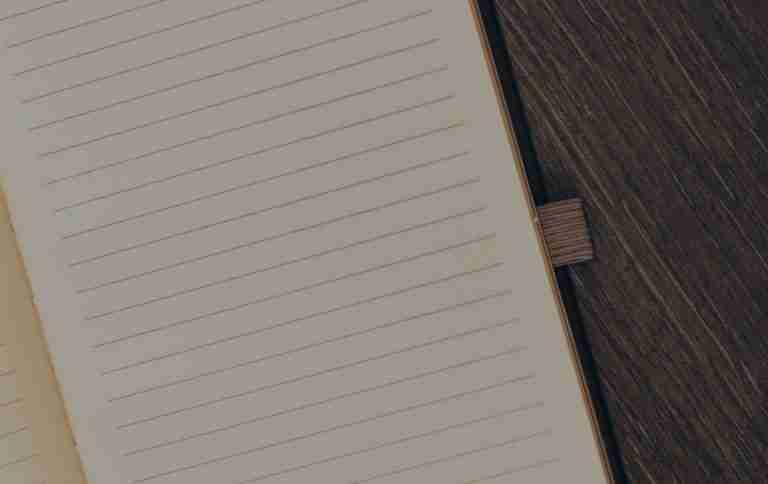Let’s be completely honest…My amazing teachers did tell me many of the things that I’m about to tell you…I just didn’t listen! Why didn’t I listen? I don’t know. Immaturity. Stubbornness. The belief that there had to be something else. Something more important. Something more complex. Something better, that mattered more…
But these 8 pieces of advice matter more than I ever could have known and I continue to rediscover their importance time and time again.
Whenever I veer of course, it’s usually one of these things that I’m ignoring.
And hopefully, by sharing them with you today, you’re inspired to continue to grow and develop your musical potential in the direction you want to take it…
1.) Listening to jazz is the most important thing you can do
I know you think you listen, but do you really listen?
When you get in the car, do you turn the pop hits of today on– I’m guilty of this too, and I swear they’re the same 5 computer-generated songs playing on every single radio station. Do bands even exist anymore?!– or are you listening to Bird, Trane, or supporting the local jazz station?
Each day do you feel the need to listen to jazz? Are you truly compelled?
Do you, in fact, listen to jazz every single day? And not because you feel you should, but because you love it?
Don’t underestimate the power of listening to jazz.
So much of what we play and who we become as a musician is based upon the music we consume.
Of course you don’t have limit your listening to jazz. Just make sure you actually listen to it, love it, and connect with it.
There are many players who say they never transcribed or learned lines from their favorite players, but somehow, they still sound great.
Wondering how this is possible?
Listening.
When we listen to music, we can’t help but be influenced by it. And, the more we’re engaged with it and the deeper we’re listening, the heavier this influence will be.
I’m sure you can relate to this…
Have you ever gone to a great show of one of your favorite musicians, or just listened to one of them for an hour or so and gotten really inspired to play your instrument?
And then you pick up your instrument and you feel like you’ve improved? That you’ve somehow absorbed the sound, technique, and concept of the person you were listening to?
That’s the power of focused listening. It can actually transform how you play, how you hold your instrument, how you put air into your horn, how you touch the keys, how you hear music in your head…
Listen to jazz like it’s your job. Make it a habit. One you look forward to. One you can’t go a single day without.
Putting listening into practice:
- Get on Spotify and Youtube
- Search for any jazz musician you’ve ever been remotely curious about and start listening!
- Find lists on the internet of people that play your instrument like this one for saxophonists
- Then look up each one of those people, learning the entire aural history of your instrument
- Make use of the down time in your day. Always be listening.
2.) Study, play, and enjoy classical music
You want to play jazz, right?
Why on earth would you listen to, or worse yet, practice classical music?! We’re jazzers after all…
I, admittedly and ashamedly, can say that at one point or another have held similar beliefs. And, my playing, technique, tone, and musical conception suffered because of it.
But you don’t see it–or hear it– when you’re in the thick of it.
When I went to the Lamont school of music a lifetime ago, my incredible teacher Art Bouton stressed the importance of studying classical music for saxophonists, that it would help in all areas of musicianship.
At the time, I didn’t really get it. I thought, I’m here to play jazz! Why would I waste my time with that stuff?
Art knew what he was talking about and I wish I listened then, but better late than never, right?
To see the great value in this advice took me years.
Sometime we have trouble seeing the value in things until we see our heroes doing it. I can tell you, maybe not all, but many of your heroes spend a lot of time with classical music, and you should too.
Put classical music into practice:
- Find a classical etude book to work from that you enjoy
- Find technical exercises and classical works that push you and force you to work on tone, technique, tricky fingerings, leaps, positions etc. Keep pushing yourself once you master something.
- Get back on Spotify and Youtube and search for any classical musician or composer you’ve ever been remotely curious about. Start listening!
- Use lists like this one to start listening to the entire history of the music.
3.) Stealing is only part of the equation
Transcribe.
You want to get better? Transcribe.
You want to learn a tune? Transcribe.
You want to learn just about anything. Transcribe. All the answers are on the record…
And that’s true, to a point…
The answers to innovation are only partly on the records. The other part is within you.
You see, you can steal all you want. There’s nothing wrong with it and some swear by it, while others condemn it.
I find much of my inspiration by studying phrases, tunes, and progressions that catch my ear. But what’s the point? To reproduce what someone has already done?
Not to me, and that’s a common misconception with transcribing jazz language.
The point is to use the information as a model.
To get inspired to take it somewhere else. To combine what you’re learning with other things you know to create something of your own.
Don’t be shy about learning how your personal heroes played, but to get the most out of it, take what you’re learning and make it your own. Think about, label it, organize it, and use it in a way that makes sense to YOU!
You’re not trying to document the works of Coltrane, you’re trying to take what he did, learn from it, conceptualize it in your own way, and make use of the information.
Putting innovation into practice:
- The next time you transcribe, think about what your goals are. What musical problem are you trying solve in that moment?
- Don’t get caught up in copying. Your goal is not be a clone– unless it is, which is totally your decision –aim to learn from what you’re ripping instead of simply reproducing it.
- Take everything you steal and get beyond using the line or information in the exact original way if you can. Try to combine it with other things you know or add your own flavor to it.
4.) Train your ear like a JAZZ musician every day
There I sat in freshman Ear Training as the professor played intervals at the piano.
“Forrest, wake up!”
It was 8am. Daylight and I have just never got along.
“Can you name the interval I’m playing?”
A brief pause. Thought. Hmmmm. And a guess…
“Minor 6th?” I ask.
“Yes, that’s correct. Good job.”
But was it a good job? Would this “ear training” help me in the real world, the world I live in, where I’m improvising jazz in real-time and interacting with harmony on-the-fly?
No.
This kind of ear training is virtually useless to the improvisor. It did introduce me to the intervals and chords, but the method was all wrong.
To use aural information the way a jazz musician needs to, it must be automatic, effortless, and instant.
This comes from drilling sounds over and over like The Ear Training Method does. The concept is simple and you can easily make use of it:
- Take one sound, either an interval, a chord, a voicing, a chord-tone etc.
- Play it over and over as you connect the mental information with the aural information.
- For example, as you play a minor 6th over and over, in your mind you’re thinking “This is what a minor 6th sounds like” and you do it until that thought is no longer necessary. You just know.
The process seems simple until you try it. Getting to the point where you “just know” takes time, practice, and dedication, but that’s how you make the information actually useful.
Don’t neglect a deep level of ear training practice. If you start today, in a few months you could completely change how you hear.
Putting REAL ear training into practice:
- Make a goal to work on ear training for 15 minutes a day
- Focus on one sound until you master it
- Remember what makes ear training useful
5.) 10,000 hours means nothing if it’s spent in the wrong way
I suck at golf.
I’m absolutely terrible, as I’ve only played a half a dozen times.
Now imagine, with no instruction or assistance, I take up the sport, dedicating many hours every single day for a period of several years to the great game of golf. I should get good, right?
Well, I might, but chances are much more likely that I’d pick up many bad habits along the way and over the years, these bad habits would become reinforced every day and get more and more difficult to break.
With each day I’d be getting worse in some major ways. But I’d think I was getting better because I spent so much time practicing.
Now imagine if instead of jumping right into the sport, I researched how people excel at the sport. I studied my favorite players and tried to figure out what path they took to greatness in order to glean some hints as to what I should work on. I then hired an esteemed private coach at absurd lawyerish prices to assist with my game from the get-go.
My time, through my research and coaching, hopefully, would be spent more in the correct way than if I had just set out to do it. I’d develop less bad habits and progress more rapidly.
Despite my dwindling bank account and foregoing ribeye for ramen, I’d likely be on a much more productive path to making my 10,000 hours of golf count.
Not all 10,000 hours are equal.
Make sure you’re doing everything you can to make your time count and not just “putting your time in.”
Putting effective time into practice:
- Don’t be fooled by the fact that you’re practicing every day for 4 hours, or “putting your time in”
- Evaluate yourself not only on the duration and consistency of your practice, but if you’re improving in the direction you want. Record yourself! but know that it’s a bit like listening to your own voice for the first time, be easy on yourself at first until you get used to it.
- Make sure you’re hitting the things you’re not good at rather than just repeating things you are good at.
6.) Embrace YOUR musical character
Who are you musically?
Are you aggressive? Understated? Depressed? Complex?
What is your musical character?
In another type of improvising, comedic improvising, the idea of “character” plays a central role. If you’ve ever been to an improv comedy act or seen “Whose Line is it Anyway?” then you know how unbelievable it is that these performers can somehow create hilarious lines out of nothing but a mere off-the-cuff topic suggestion.
But there’s something much larger at work here…
Their character.
Their character at any given moment dictates their attitude, perspective, and general outlook on any situation that may arise.
In other words, their jokes and responses to any of the other characters or happenings within the scene flow from their character’s perspective.
Now I’m no expert in comedic improv, but this analogy can help us understand what character means to a jazz musician, or why we should even think about it in the first place.
It’s not something that we tend to think about, but it could hold the answers you’re looking for.
Think about who you are musically, or who you wish to be. What specific qualities does your musical character have?
Putting musical character into practice:
- Grab a pen and paper
- Write down the qualities your desired musical character would have
- Be creative! If it helps you to draw from film, literature, or anything else, go for it!
7.) Don’t let anything or anyone kill your passion
I love to play the saxophone.
I love to compose music.
I love to listen to music.
I love music.
I love everything about it. Putting my pen to manuscript paper. Listening on my AKGs and transporting myself to a far away place. Contemplating new musical ideas of what could be…
Our passion, in some ways, can be very fragile…
We identify with the things we love so much that when someone criticizes us within this domain, it causes extra damage.
I remember teachers– yes, we all had some not-so-amazing ones too –yelling at students about how bad they sound, or putting them on the spot to showcase to the class their lack of knowledge.
You know what? Let people say what they want. It doesn’t matter.
Not only is it only one person’s opinion about YOUR craft, but the musician you are today will be completely different from the musician you are a month from now, a year from now, or 5 years from now!
Play because you love to play and don’t let the judgements, competition, or critiques from others affect your passion. Sometimes we need to completely reprogram our mind to think like this, but it’s not difficult.
It’s a choice.
And it’s an easy one to make when you remember the enjoyment and connection you have with music.
Putting your passion first into practice:
- Think about why you love music so much
- Be grateful that you “have” this outlet in your life
- Remember the transient nature of things and don’t be brought down by the one-minded opinions of what will be your former-selves.
- Aim to enjoy your musical journey
8.) There are multiple paths to reach the same place
In many things there is a well defined path to reach a high-level of performance.
Jazz improvisation is different.
What works for me might not necessarily work for you, and, even if it did, our musical goals are likely quite different in terms of what we’re trying to express.
But, there seems to be an accepted, legitimized structure to becoming a great jazz improvisor utilizing things like:
- chord/scale relationships
- studying harmony
- training your ear
- learning jazz standards
- transcribing jazz solos
Within just these 5 topics, there’s an infinite amount of room for variation.
When we’re talking about chords and scales, some people think very modally, others do not.
Focusing on harmony, some people study chord voicings at the piano, others look at how a melodic line would play through them.
Ear training can mean a million things, and the same goes for learning jazz standards and transcribing solos. Do you learn it from the recording? Do you memorize the solo? Do you write it down? Do you analyze it?
Incredible alto saxophonist David Binney is open about the fact that he never memorized solos or licks, despite that many of his peers did learn that way.
Take a listen to him play over the standard You’re My Everything and you’ll see…it’s pretty clear that he can approach jazz standards just fine…
So how is it that he never transcribed and can play the way he does? Well, it’s not magic.
He focused on listening to jazz a ton, studied an immense amount of classical music, developed his ear, and probably countless other things…point is, there are many ways to reach a high-level of jazz improvisation and they all place emphasis on different areas, but regardless, they all involve dedicated and thoughtful study.
But rather than doing exactly what worked for one of your heroes, do what works for you.
If you’re not getting the results you want and improving in the direction you wish, change what you’re doing. Experiment. Try different things and be open to altering your notion of what you have to do.
There are multiple paths, so don’t be afraid of finding yours.
Take these 8 pieces of advice that people did tell me, and listen to them any time you feel yourself straying from your musical path. With a little introspective thought, they’ll put you right back on track!










